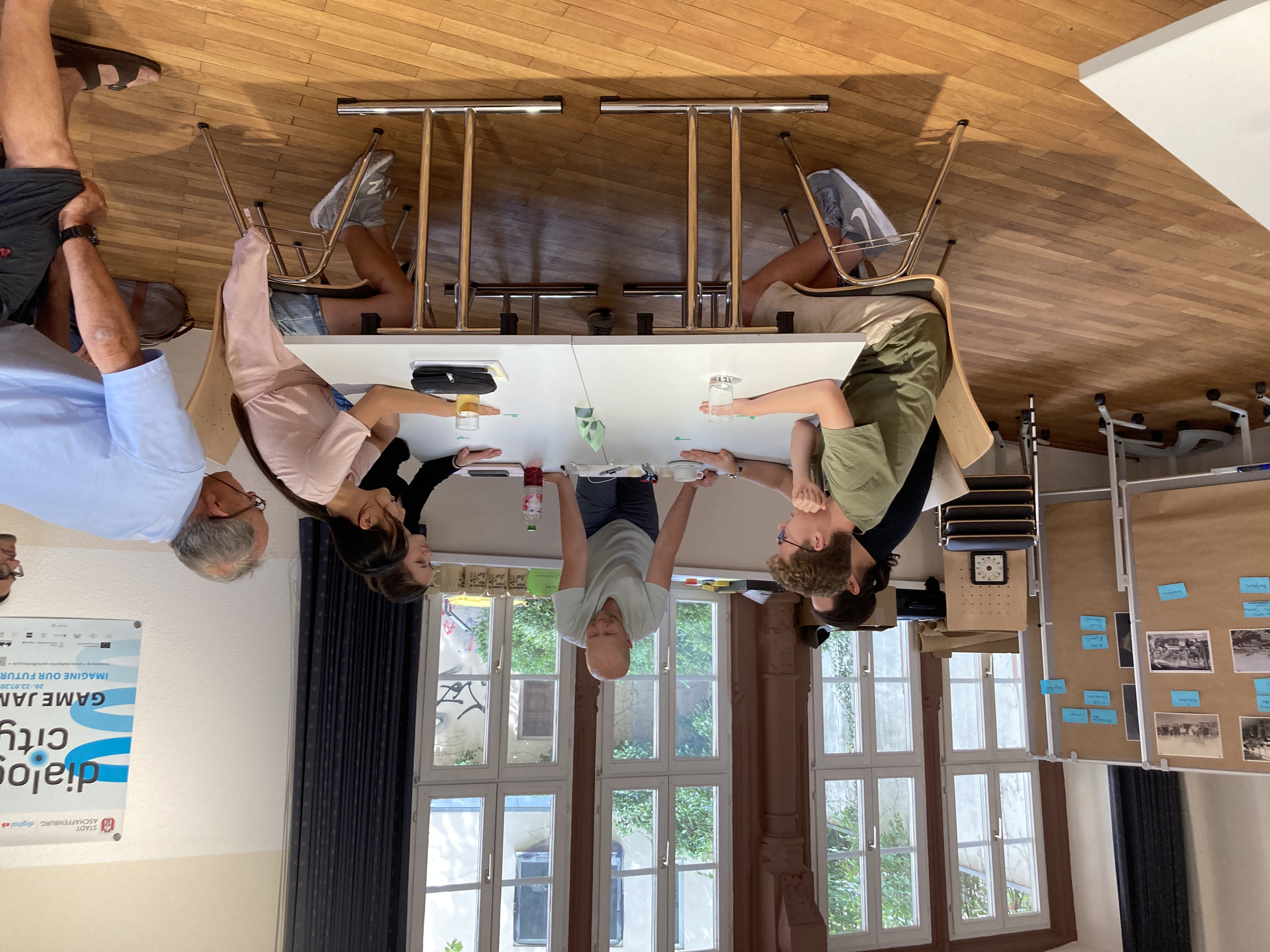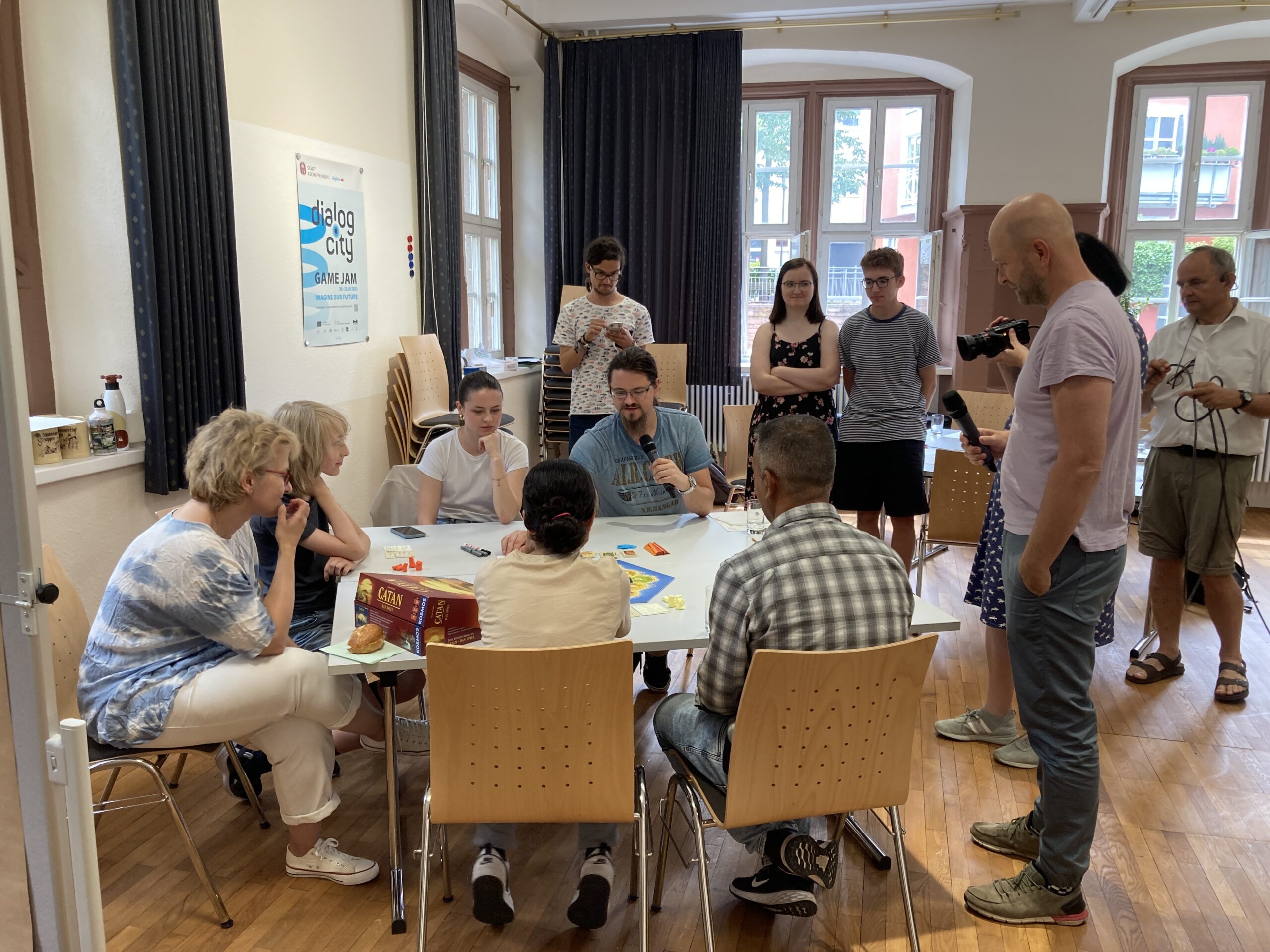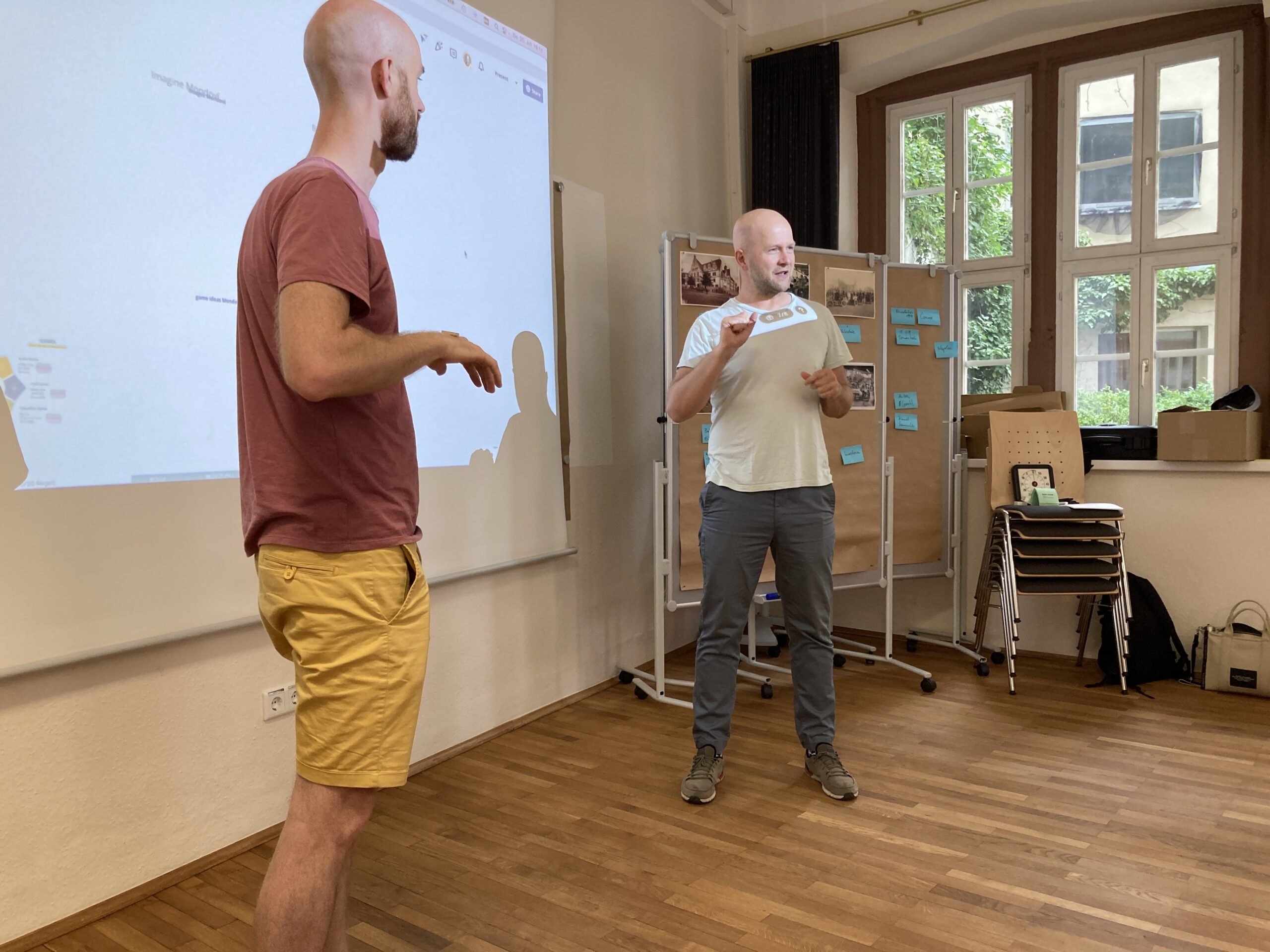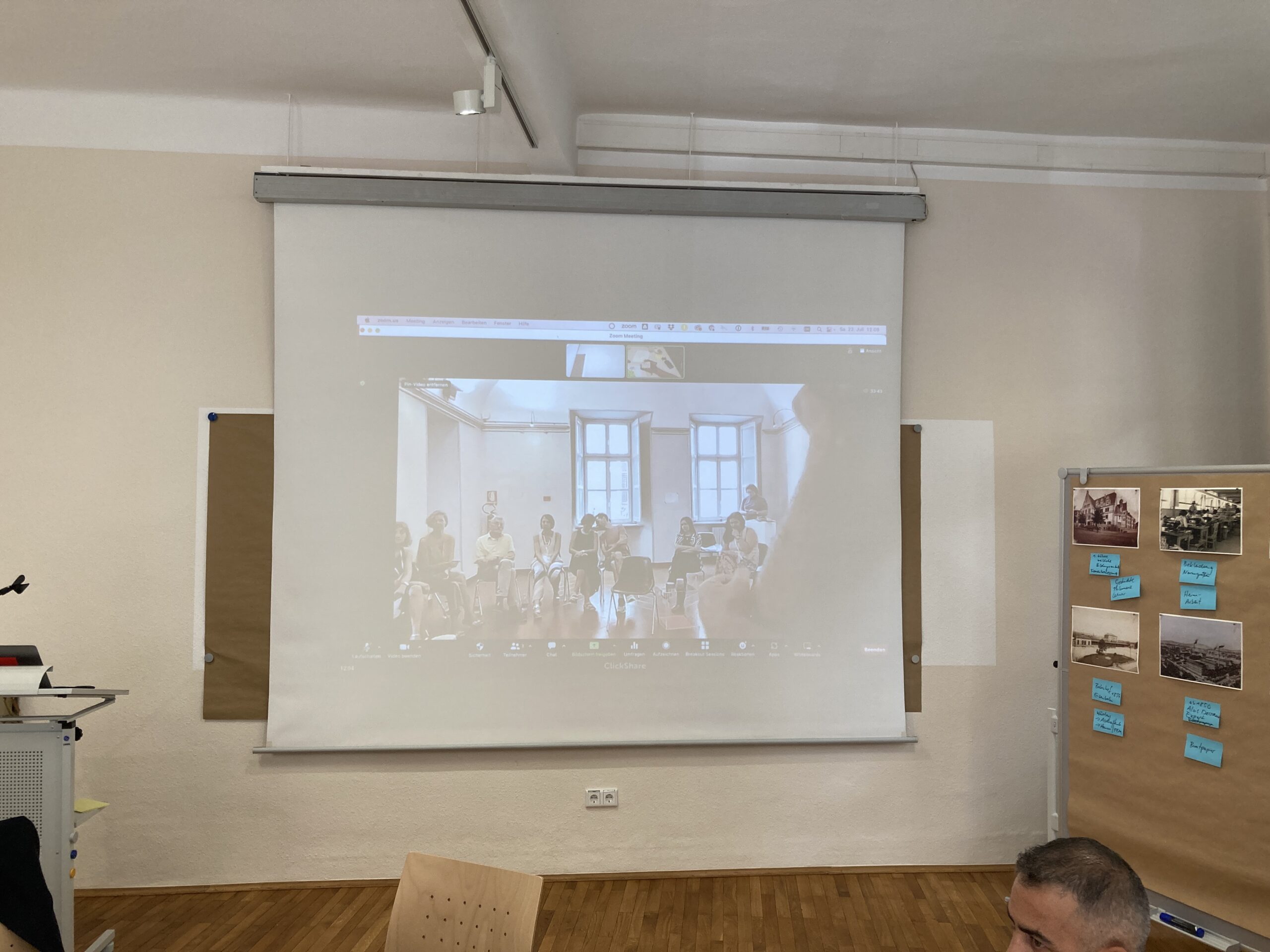Intro
The first Game Jam took place in Aschaffenburg from July 20th to 22nd, 2023. This event, carried out within the EU project “Dialog City”, ran parallel to the Game Jam and the first hybrid festival of the same project in Mondovi (Italy). During these three intensive days of play, there was at times a direct online connection between the participants in Aschaffenburg and Mondovi, which primarily served the purpose of exchanging new ideas and experiences and learning from one another.
The moderators Axel Watzke and Monika Münch (Main-Echo) welcomed the participants in the Schönborner Hof in Aschaffenburg. The round of introductions showed that the Game Jam team had a diverse composition. Some participants work in the city archives of Aschaffenburg, a law student and a student from the Dalberg-Gymnasium were also there, as well as a doctor, an FU student, and a pensioner. They all came with different ideas and expectations, but what they all had in common was their curiosity and willingness to think up and try out new game ideas and to develop an interesting and challenging game together!
In his introduction, Axel Watzke, who has already moderated several game jams, described the course of the event and briefly presented the goals of the “Dialog City” project. The focus of his remarks was the term “future literacy”, which is linked to a key question: How can one think about the future, does one have to relate to the past? Watzke referred to the well-known saying of actress and activist Jane Fonda, who criticized that we treat the world as if we had a second one at our disposal.
In order to establish the historical reference to the city of Aschaffenburg and to be inspired by this when developing the game, Vaios Kalogrias from the city archives presented events and personalities from the city’s history. They included the pioneers of industrialization Alois Dessauer and Johann Desch with their innovative companies, the courageous democrat Jean Stock and the pioneer of the educational idea Philumene Lehner. Can working from home for the clothing industry in the 19th century be seen as a prototype of the home office? What can we learn from Stock’s struggle for social justice today and for the future? These and similar questions were given here as input.
Axel Watzke picked up the thread again and connected the Aschaffenburg past with the idea of the Game Jam: Can you make a game about Alois Alzheimer, who went to school in Aschaffenburg, or the November Revolution? What about the local women’s movement that campaigned for better education for girls? What other examples from Aschaffenburg’s history are suitable for game ideas? Watzke identified six game categories that could be tried: board games, card games, simulations (e.g. battle reenactments), spatial games, video games and physical games (including sports activities). The participants wanted to focus on these types of games. The highlight of the matter: only simple analog tools could be used, such as scissors, dice, paper and adhesive tape, there was also a time limit. This challenge was accepted with enthusiasm, and in groups of three the participants deepened their thoughts on the game. Curious glances at the neighboring table were not lacking, but joy and a spirit of cooperation could be felt everywhere!
Axel Watzke and Monika Münch accompanied the whole thing, intervened with constructive suggestions and looked for solutions to make the games more interesting and attractive. It turned out that the development of a board game, for example, is not easy, requires a lot of concentration and has well thought-out rules. However, the enthusiasm of the participants overcame all obstacles and led to results! There were no limits to the imagination, intensive work and teamwork paid off. Important motives included empathy for fellow human beings, society’s responsibility for future generations, technology as an opportunity and danger, simplification of complex processes and green cities – this is what gave rise to game ideas and concepts.
Between the sessions there was also an online exchange with the participants of the Game Jam in Mondovi, in which a team from the city archives (Joachim Kemper, Jens Best) took part. Undeterred by the current heat wave, the partners in Mondovi did an excellent job in organizing the first hybrid festival of the “Dialog City” – further hybrid festivals will follow in other cities of the project, including Aschaffenburg. Axel Watzke and Stefan Horn, who moderated the Game Jam in Mondovi, finally presented the game results together on July 22nd, which were eagerly discussed by the participants. While the Aschaffenburg Game Jam teams considered pedagogical aspects and survival strategies when developing their board games and attached importance to saving the environment, reducing CO2 and relieving traffic, the Game Jam teams in Mondovi focused more on space games and topics such as water, health, mobility and hunger – topics that will probably be important for the future of the cities and that require solutions.
Axel Watzke and Stefan Horn were very positive about the presentations and made suggestions for the final versions. All teams had great fun showing their games, commenting on individual moves and designing game characters. They are especially looking forward to the next Game Jam!
Watch the report of TV Mainfranken here




